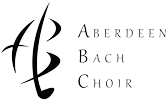This short, highly imitative chorus, initially pits together pairs of voices before developing into three, and then four, part polyphony. |
|
Chorus Hebrews I, v 6 |
[And] Let all the angels of God worship him. |
Scene 10 alludes to the events of Pentecost and the birth of evangelism. Surprisingly, Handel chooses a minor key for this aria, which has long melismatic lines for the counter tenor, filled with both straight and dotted quavers and ornamentation. This movement is also characterised by hemiolas at cadential points. The melody is played by first and second violins in unison. |
|
Aria Counter Tenor Psalm LXVIII, v 18 |
Thou art gone up on high, thou hast led captivity captive and received gifts for men, yea, even for thine enemies, that the Lord God might dwell among them. |
The tenors and basses open this short whirlwind of a chorus with a strong, bold statement, followed by fast and furious SATB polyphonic writing with long melismas in each part. ‘Great was the company of the preachers’ is illustrated by all four parts singing simultaneously throughout when these words are present – nowhere does Handel diminish the texture to two or three parts – he asks for a crowd singing all together. |
|
Chorus Psalm LXVIII, v 11 |
The Lord gave the word: great was the company of the preachers. |
This beautiful aria has a lilting Siciliano-type structure to its rhythm. Once the soprano enters the strings have a notable and uplifting countermelody leaving the actual accompaniment and the provision of all harmony to continuo alone. Historically, five different versions of this aria exist from different occasions, in the hand of either Smith or Handel, both with and without chorus. |
|
Aria Soprano Romans X, v 15 |
How beautiful are the feet of them that preach the gospel of peace, and bring glad tidings of good things.[!] |
The music in this chorus is highly imitative. The voices enter in a type of stretto˚, starting with the sopranos and working downwards. Again Handel uses only two different musical motifs in this movement; the first line of text has a phrase which falls and then rises, ending up one octave above where it started, and the second line of text is treated fugally, with a faster moving motif of running quavers, with the word ‘world’ treated melismatically. |
|
Chorus Romans X, v 18 |
Their sound is gone out into all lands [Yes verily their sound went into all the earth], and their words unto the ends of the world. |
As we move into Scene 11, and the world and its rulers reject the gospel, the majestic sound of the bass voice is brought to bear in order to exert the necessary gravitas to the sentiment. Handel writes a lengthy, intimidating and dramatic introduction to this with fizzing strings rising ever higher in pitch and heavy tremolando pedal bass parts. These techniques for dramatic effect are first found in the operas of Monteverdi, which Handel may well have seen when he was in Venice in 1710. The word ‘rage’ is treated with appropriate musical venom and the technical demands placed on the soloist are considerable. The second sentence of the text is treated much more gently however, and the music transitions from the major to the minor tonality. |
|
Aria Bass Psalm II, vv 1-2 |
Why do the nations [heathen] so furiously rage together? And why do the people imagine a vain thing? The kings of the earth rise [stand] up and the rulers take counsel together against the Lord and against his Anointed. |
Again, the device of stretto is deployed at the start of this lively and forceful chorus, with tenors and sopranos leading the action, singing a short, pointed motif falling in intervals of a fourth. Handel uses the voices in pairs to begin with, T/S and B/A. The second clause in the text is treated fugally, again led by the tenors. These two musical ideas alternate throughout the movement with the frequency of the alternation speeding up as it progresses. |
|
Chorus Psalm II, v 3 |
Let us break their bonds asunder and cast away their yokes [cords] from us. |
In Scene 12 the focus of the work is centred on God’s triumph. The words ‘shall laugh’ are ominously spread across a tritone. |
|
Recitative Tenor Psalm II, v 4 |
He that dwelleth in heaven shall laugh them to scorn: the Lord shall have them in derision. |
Aberdeen Bach Choir
Scottish Registered Charity Number SC008609


























